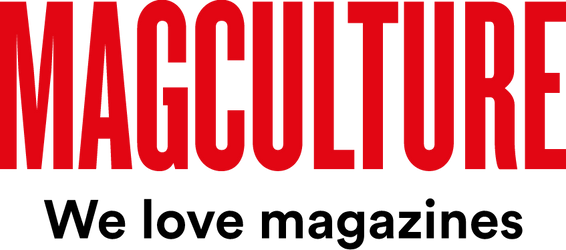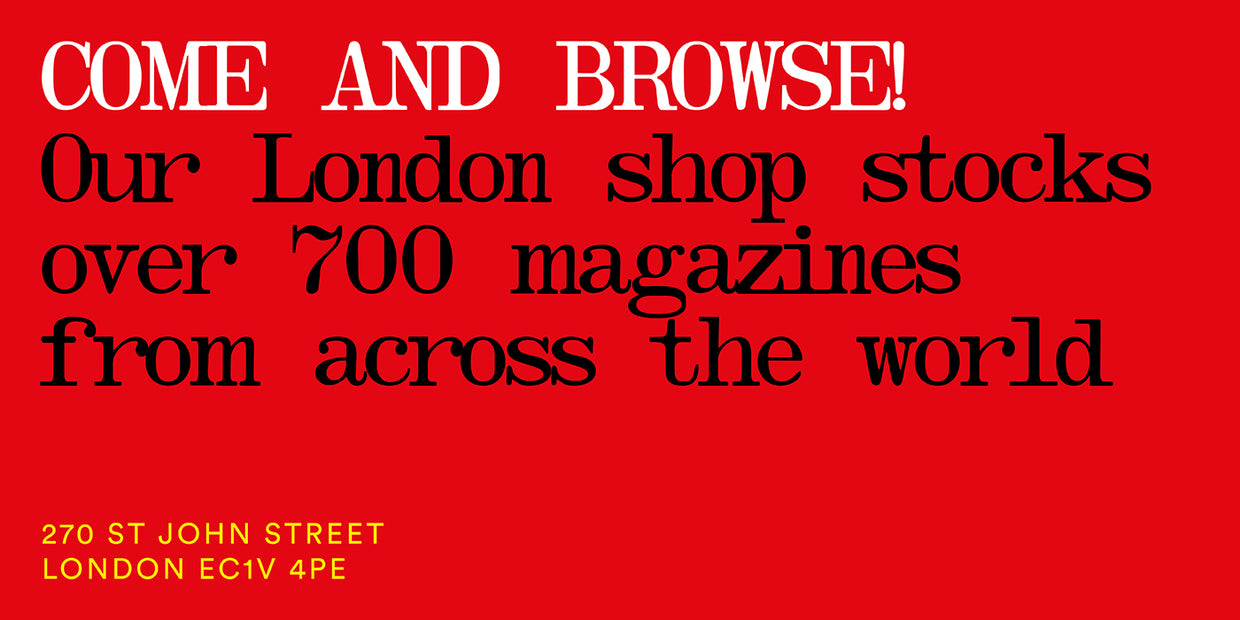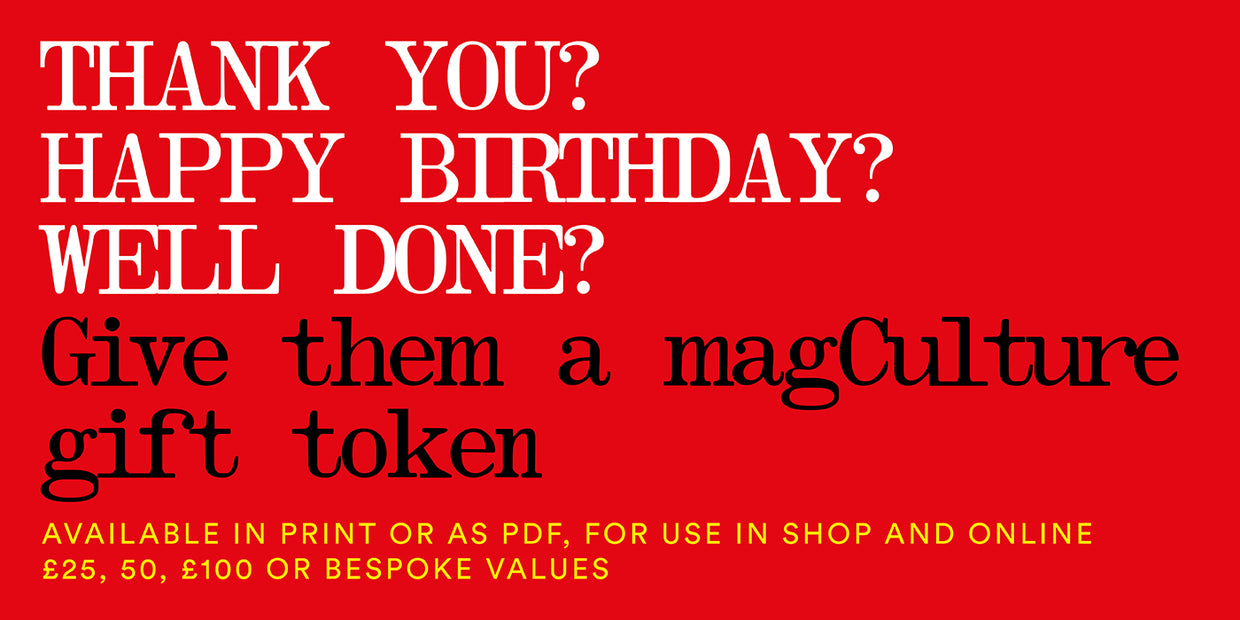
Robert Harries, Folding Rock
This week, new Welsh literary magazine Folding Rock launches with a party in Cardiff. Co-founder Robert Harries gives us the background to the new magazine as he shares his working week.
Robert is an editor and designer from Swansea, with a background in book publishing that includes editing a wide range of authors, from the globally renowned entertainer Max Boyce to the million-selling Richard Zimler and the Booker Prize-nominated Stevie Davies and Joshua Jones. He shares the Editorial Director’s role at Folding Rock with Kathryn Tann.
What are you doing this morning?
Though Folding Rock is a Welsh literary magazine, I’m currently primarily based in East Dulwich in South-east London. My typical routine, given that my flat is pretty much my office (and thus I’m mercifully spared a commute), starts with a wander around Peckham Rye Common or down to Old Spike for my first of several daily caffeine fixes (today I’ve done both, and I’ve also snuck in some pastries from nearby Rise & Bloom). I’m then usually back at my desk for an 8.30am start, though not before I’ve picked the soundtrack for the day – usually something on the radio if I’m feeling uninspired, or otherwise I’ll put on an LP.

This particular Monday is perhaps a tad crazier than most, though, as we’re actually publishing our first issue this coming Thursday (6 March 2025), with the launch party happening in Cardiff that evening in Da Coffi, in the shadow of the Principality Stadium. As a result, this morning I’m meeting with my co-editor, the writer Kathryn Tann, over Zoom (as she’s based in York) to figure out last-minute logistics, details and—most importantly—who’s going to handle the dreaded welcome speech. Other than that, I’m due to reach out to some writers to commission some fiction for our forthcoming second issue (publishing July 2025).
 Describe your work environment—what can you see from your desk/ through the window?
Describe your work environment—what can you see from your desk/ through the window?
I do bits and pieces of audio engineering and mixing alongside the magazine, too, so my work desk is a bit of a hodgepodge of literary paraphernalia (pens and a notepad, the New Oxford Style Manual, some assorted books from Fitzcarraldo Editions, Cipher Press, Dead Ink etc.) and musical gear (a Universal Audio interface, Beyerdynamic DT 990 Pro headphones, an Akai MIDI controller, various guitar picks and—my pride and joy—a Japanese-made white Fender Telecaster). As graphic design and editing make up a sizable chunk of both my Folding Rock and freelance work, I typically connect my MacBook Pro to a larger 27-inch monitor—scrutinising text on a 13-inch screen for hours on end is a guaranteed migraine.

I’m lucky enough to work in a room with fairly sizable windows, so in spring and summer I get a pretty decent amount of sun. But other than that, my view is fairly suburban and uneventful. Luckily, our street is a venerable cats’ paradise, and one of our more boisterous feline neighbours—a surly black domestic longhair named Keith – loves to drop in and preen himself within my sightline. Accompanying this display is typically, as mentioned above, either something from BBC 6 Music or from mine and my girlfriend’s record collection. On particularly frequent rotation right now are Sam Fender’s new album, ‘People Watching’, Fontaines DC’s stunning ‘Romance’ from last year, Can’s seventies classic ‘Tago Mago’, and ‘Pacific Breeze Vol. 1’, the outstandingly curated Japanese citypop compilation from Light in the Attic.
Which magazine do you first remember?
Like many teenagers, I was utterly obsessed with the UK music weeklies and monthlies such as the NME, Q and Kerrang, as well movie magazines such as Empire and Sight and Sound, and the Official PlayStation Magazine (when physical demo discs were still given away with it). I have always found it amusing that I went into literature as a career, considering that, growing up, music, film and video games were all significantly above books in my preferred-artform stakes. It probably wasn’t until I was in university studying English (quelle surprise) that I first encountered the concept of the literary magazine.

Aside from yours, what’s your favourite magazine?
Nowadays, I’m an avid reader of most of the major UK literary periodicals, particularly Granta (England), Gutter (Scotland) and The Stinging Fly (Ireland). These three in particular have been hugely influential in the genesis of Folding Rock, whether it be giving us a blueprint for how to best champion a country’s writerly community, or more general ideas or advice. Other than this trio, as a huge fan of literature in translation, I’m also a frequent purchaser of Wasafiri Magazine, which has opened windows to languages, cultures and writers I feel I’d have never otherwise discovered.
Outside of literature, I continue to buy and love Electronic Sound, which for me—a lifelong lover of New Wave, ambient, kosmische Musik and various other forms of electronica—stands as one of the best written, designed and produced magazines there is.

Describe Folding Rock in three words
Fresh. Ambitious. Necessary.
Why launch a magazine specialising in Welsh literature now?
Wales does have a lengthy history of literary periodicals, from the long-running Planet and New Welsh Review, to the Welsh-language O’r Pedwar Gwynt, to newer kids on the block such as These Pages Sing. However, for whatever reason, whether it be the historically challenging state of arts funding in Wales or otherwise, many of these magazines have unfortunately struggled to financially survive in the twenty-first century despite sizable cultural contributions. Indeed, while Kathryn and I are obviously delighted Folding Rock now exists, there is a certain bittersweetness to the fact that the only reason funding was available for us is that Planet and New Welsh Review lost theirs. The former, founded in 1970, has since sadly shut its doors for good.
So why do it when the road ahead appears paved with seemingly inevitable struggle and frustration? There’s no doubt that these are fiscally challenging, culturally overcrowded times to be launching a new magazine in—itself a hard-enough venture outside of this contemporary context. Even our name hints at this: while ‘Folding Rock’ was initially intended as a reference to Wales’s rich geographical association with, and reliance upon, rocks and minerals, particularly the country’s layered Orcovician formations, I must confess my mind leapt to the oxymoronic unfeasibility—even futility—evoked by the phrase. Scarcely known for being the most malleable of substances, to attempt to actually fold a rock—or, say, run a literary magazine – would at first appear to be a fool’s errand.
However, you only have to glimpse once more at the page-like creases and layers in the epochs-old stone to be reminded that what at first seemed unthinkable perhaps is possible with time—and maybe just a little pressure—after all. And let us not forget that there has arguably never been a healthier literary scene in or connected to Wales to platform.
Writers such as Sophie Mackintosh, Joshua Jones, Rachel Dawson and Anthony Shapland have all emerged in the last decade to major fanfare, critical acclaim, bestseller status and prize listings, and the establishment of a major new Welsh literary periodical will (hopefully) unearth more stars of the future that can replicate—or surpass—the successes of those aforementioned. Ireland’s The Stinging Fly has shown what can be achieved by nurturing and championing a thriving, collaborative writerly community, with their editorial and curatorial skill arguably a major factor in the global dominance of Ireland’s new wave of contemporary literary writing (spearheaded by Sally Rooney)—many of whom got their very first publication in its pages. We ultimately want Folding Rock to be Wales’s equivalent—proud of its heritage and celebratory of the words connected to it, but with ambitions to be seen and respected on a larger scale.
Can you talk through the process of launching?
Kathryn and I have a good decade and a half of publishing experience between us, but that’s been more on the trade side in traditional publishing houses (we both put in a good number of years at Cardigan-based indie Parthian Books). Magazine publishing is completely new to us, and it’s been a bit of a brutal learning curve at points to not only figure out our commissioning strategy and decide what direction we want to take the magazine over the next few years, but also go through the usual logistics of setting up a business and the subsequent organisational admin that comes with that – the pair of us are wholly new to the owning-a-company side of things, so that’s been a novel yet challenging experience.
We both always knew we wanted to do some kind of literary venture together, as though we’ve never worked in the same place at the same time, I think we’ve respected each other’s talents, opinions and ambitions from afar for a good few years. After Covid, we toyed with the idea of starting a publishing house, as we’ve long felt that Wales is due its moment on the UK literary scene and beyond, and that certain opportunities were perhaps being missed to achieve this. But, as is ever the case with the arts, funding was difficult if not impossible to achieve, and we didn’t want to just become another kitchen-table two-person entity with big ambitions but no financial heft with which to see them through. I think it was a sense of ‘we’re not going to do this unless we can do it right – no compromise’. So when the tender from the Books Council of Wales came up in the first half of last year, we leapt on it and – to my amazement – won it. I’m much more of a visual and big-picture person, and not much one for numbers or bid writing, so I have to give the predominant amount of credit for our success here to Kathryn, who really carried me throughout this part of the process!
That being said, even once we had the first instalment of the grant in our business account, I initially found scant cause for celebration, as the prospect of convincing others of our dream, to be honest, left me feeling laden with anxiety. What if our ambitions just weren’t feasible, or a little too iconoclastic? I think there were two moments that made me realise that it was just maybe going to work.
The first was being connected with Tom Morris, ex-Stinging Fly editor (Sally Rooney described him as ‘the source of all her good writing advice’) and a phenomenal writer in his own right. Tom was incredibly passionate and generous with his time, and across a series of Zoom calls and emails gave us an enviable array of contacts and advice that we’re still utilising to this day. The second was when I approached Sophie Mackintosh and Joe Dunthorne, two amazing writers I’ve long admired and respected, to see if they’d maybe like to contribute something to our first issue – and they gave an enthusiastic yes! As fiction editor for Folding Rock, that latter one is probably the crystallising point in my mind where I went ‘okay, we might have something here that resonates if writers of this calibre are willing to put their name to it’.

Please show us one spread that sums up how the magazine works, and gives a sense of what the reader can expect from the mag.
This is probably the spread that best encapsulates our visual ethos, and what we want readers to expect from us going forward: outstanding-quality prose, typeset cleanly and accompanied by beautiful, evocative imagery. We were so fortunate to be able to work with the acclaimed designer Matt Needle on the company branding, interior illustrations and general aesthetic of the magazine. I’ve been a fan of his and have admired his film poster work on Instagram for years, so I still can’t quite believe we got him on board to work on our little ol’ magazine. Such a lovely, laid-back and supremely talented guy who I couldn’t speak highly enough of.
What has the magazine taught you that may be helpful to anyone else planning to launch one?
Truthfully, I feel this is probably a hard one for me to answer, as I’m aware we’re in a tremendously privileged position in being able to launch this magazine with significant funding (via a four-year grant from the Books Council of Wales). I honestly can’t envisage being able to produce something that successfully aligns with our ambitions without the capital we’ve been able to draw from, so I have the upmost respect for anyone who chooses—or is forced—to launch or sustain a periodical like ours without this safety net.
However, two things I would say are applicable to everyone are the following:
1) Always ask. I genuinely continue to be staggered by the generosity and humility of the established people and organisations who have given us not just the time of day, but far more support and advice than I would have ever expected, and often for little to nothing in return.
2) Collaborate. At the end of the day, we’re but one small entity in a small country, and to think we could change everything purely by ourselves overnight is lunacy. We wholly embrace the idea that we’re far stronger in numbers, and in fact, we’ve recently joined forces with another Welsh literary magazine, Poetry Wales, to offer a poetry and prose subscription featuring three issues apiece from both periodicals. To those who see other entities operating in the same space as nothing but business rivals, this might seem like anathema, but to us, partnering with our fellow magazines is absolutely a worthwhile venture and a wonderful thing for Welsh writing (and readers). We’ve also been lucky enough to form partnerships with sizable entities such as Hay Festival and the Dylan Thomas Prize, which have led to other opportunities that we would have struggled to attain otherwise.
What are you most looking forward to this coming week?
Without doubt the launch of our inaugural issue on Thursday. Call me a natural pessimist—I figured we’d draw the classic audience of a man and his dog. But somehow we’ve managed to sell out all of our entry tickets, so are now anticipating a packed house. It’ll be incredible to see and meet so many passionate, proud supporters of Welsh literature in one room, as well as see the culmination of hundreds of hours of effort on mine and Kathryn’s (and our authors’!) parts made manifest.


